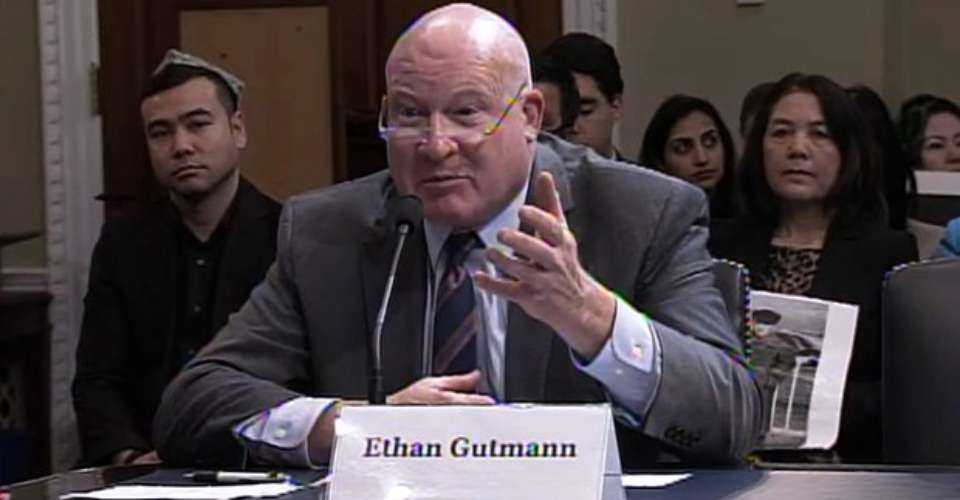
Ethan Gutmann, a research fellow at the Victims of Communism Memorial Foundation, testifies to the Congressional-Executive Commission on China on Capitol Hill in Washington, D.C., on March 20, 2024. (Photo: RFA)
Experts testifying at a congressional hearing in the United States have accused Chinese authorities of collecting genetic data from Uyghur minorities to power a forced organ transplant program marketed to Muslim medical tourists from Gulf states.
“The organs harvested from Uyghur Muslims who abstain from pork and alcohol consumption are sold for a premium price,” experts told the US Congressional-Executive Commission on China, Radio Free Asia reported on March 20.
Ethan Gutmann, a research fellow at the non-profit Victims of Communism Memorial Foundation told the committee that Chinese authorities advertise Muslim prayer rooms and halal menus at their “transplant hospitals” to lure medical tourists.
“On the assumption that Gulf state organ tourists prefer Muslim donors who don’t eat pork, [China] has tried to capitalize on the switch from Falun Gong to Uyghur sources,” Gutmann said.
Uyghurs aged in their mid-20s to early 30s are being taken from mass internment camps and killed for their organs, said Gutmann who is the author of the book “The Slaughter,” which discusses forced organ harvesting.
Chinese authorities have insisted that they have banned the forced organ harvesting of executed prisoners in the country since January 2015.
Gutmann alleged that the focus had shifted from using adherents of the banned Falun Gong spiritual movement to Uyghurs and other Muslims interned in Xinjiang around 2017.
The Falun Gong adherents are mostly located in the heavily populated coastal areas of China whereas the Uyghurs are located some 4,000 kilometers (about 2,500 miles) to the west in Xinjiang, RFA reported.
Texas state representative Dr. Tom Oliverson told the committee that in his interviews with victims, “they spoke of undergoing a series of medical tests not for their benefit, but to assess their overall health and tissue type.”
Reportedly, the results of the free “health check-ups” were never shared with those who underwent it, he said.
The medical tests done by the authorities were used as genetic-sequencing opportunities, alleged Matthew Robertson, a doctoral candidate at the Australian National University in Canberra.
“Beijing has conducted mass blood-typing and DNA testing on vast parts of its Uyghur population under the banner of ‘health checkups,'” Robertson said.
“There is no institutional constraint on this data being put to predatory uses, such as organ matching,” Robertson warned the committee.
Maya Mitalipova, director of the Human Stem Cell Laboratory at the Massachusetts Institute of Technology’s Whitehead Institute for Biomedical Research, alleged that China’s DNA database was “the world’s largest” and had cost “billions of dollars” to build.
The country’s organ-transplant industry conducts at least 60,000 operations a year, with the “least expensive” kidneys costing about US$70,000, and other organs fetching up to US$500,000, Mitalipova said.
The Chinese Embassy in Washington did not respond to a request for comment, RFA reported.

